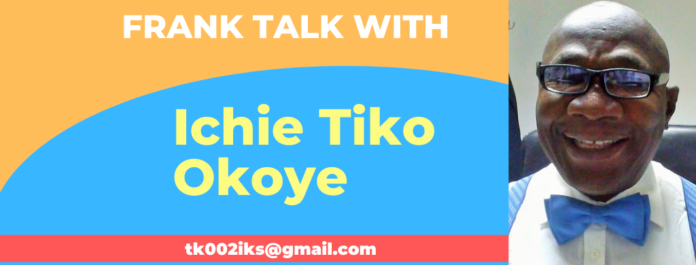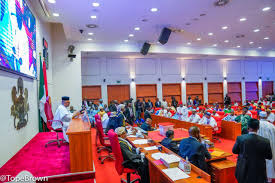The coupists in Niger were buoyed by the caricature many Nigerians were making of their own president and adopted a hard-line stance that would otherwise be untenable.
By Tiko Okoye
Right on the heels of the toppling of Nigerien President Mohammed Bagoum by his Presidential Guard, the Authority of the Heads of State and Government of the Economic Community of West Africa States (ECOWAS) – the regional organisation’s highest tier of governance – immediately announced a set of sanctions to be imposed on Niger Republic should the detained civilian president not be restored to office within a two-week deadline that ended last Sunday.
Of all the sanctions said to be under consideration, that of a possible military invasion has been the most hotly debated within and without ECOWAS. Its proponents contend that if the rash of military coups that is breaking out in Sahel Africa isn’t immediately nipped in the bud, it would have a domino effect – a situation in which it would trigger a series of similar events occurring one after the other, as was the case in the period between 1966 and 1990, with grave consequences for constitutional non-compliance.
“History,” wrote German philosopher Karl Marx, “repeats itself, first as tragedy, second as farce.” Marx’s dictum can only concretise when and where human beings keep failing to see the unpleasant experiences as a salutary reminder of the lurking and looming danger of anomie. “History says, if it pleases,” so posited American poet Carl Sandburg, “’Excuse me, I beg your pardon, it will never happen again, if I can help it.’” But empirical evidence abounds to show that both creators and watchers of history can never really help themselves, hence a form of guardian council is deemed necessary to avail the former of the much-needed help – including threat of a military intervention – for them to help themselves.
But opponents argue that military action – and even the imposition of sanctions – would be counter-productive. They argue that it could have unintended consequences that may further adversely impact the peace and stability of large swathes of West Africa.
I’m, however, aghast that the pushback against any form of military intervention – or even sanctions on Nigerien Republic – has been increasingly querulous and highly personalised in Nigeria, making it very crystal-clear that there’s more to the entire saga than meets the eye.
One is, therefore, left with no other logical explanation than that it is being orchestrated by the same groups yet to successfully transit from an election campaign mode to that of governance. They are the ones who don’t give a hoot about the irreparable damage Nigeria collectively suffers just as long as Tinubu continues to receive his comeuppance. Then, there are also those hoping that de-marketing Tinubu in large swathes of the North, as a fallout of the Nigerien debacle, would significantly improve their odds of supplanting him, should the Court order a rerun of the February 25 presidential election.
There’s no gainsaying that never in her history has Nigeria being so dangerously divided along the fissures of tribe and religion as it is today. The polity is characterised by a dearth of cohesion, mutual distrust and a preponderance of fractionation and fragmentation, fitting every description of an atomistic society. Nigeria has finally morphed into a revolving door of errors – mostly unforced and self-imposed – that seems to be eternally opening and never closing.
The entire nation is indisputably at the point of discomfiture and frustration that led the charter Vice-Chancellor of the University of Calabar, Prof. Emmanuel Ayandele – reeling from the relentless fusillade of petitions, abuses and curses – to brand the old Cross River State as “an atomistic society perpetually at war with itself.”
READ ALSO: Ode for military liberators of Niger Republic
Don’t get it twisted. It isn’t as if I’m fully in support of military invasion. I cannot in good conscience support any form of military intervention, knowing what lachrymose harm Gen. Yakubu Gowon’s ‘police action’ unleashed on the psyche and fortunes of Ndigbo, and seeing the devastating effects of Vladimir Putin’s ‘special military operation’ in Ukraine and the West’s misadventures in Afghanistan, Iraq, Libya, Syria and Yemen, among others.
But even though it’s well within ECOWAS’ rights to retain military invasion as a last-card strategic option, I still don’t envision Tinubu going to war against Niger – and this isn’t because of the noises being made by Lilliputians like Mali and Burkina Faso. Just that in diplomatic relations, you don’t fall your own hand by taking your joker off the table too quickly – more like playing a poker card game wearing your feelings on your face rather than maintaining a poker face!
That it remains a real threat is enough to make even the maddest rabble-rouser think twice. That those making the ‘never-military action’ campaign know better is evidenced by the fact that they are yet to condemn Putin – the apple of their eyes – for always playing the nuclear card to checkmate the West from going overboard in Ukraine.
My fellow compatriots, the clear and present danger the nation is facing by being encircled by a constellation of Russian-sponsored military juntas should urgently arrest our attention. This isn’t about Tinubu whose presidential tenure has an end-by date, but about the likely state of our security, stability and participatory democracy. “Soldier go, soldier come, but barrack remains” should be our unifying catch phrase.
Besides, while reading President Tinubu’s letter transmitted to the Red Chamber, Senate President took pains to explain that it was more of an informational and exploratory effort aimed at intimating the Senate of the actions so far taken by Nigeria and ECOWAS to restore democracy in Niger Republic, contrary to the apprehension being expressed in several quarters that Tinubu was seeking its approval to launch an invasion.
There isn’t a scintilla of doubt in my mind that the way and manner in which the usual social media storm troopers and opponents of a phantom military invasion went about it that caused all the diplomatic efforts embarked on by the president through dispatching two very high negotiating teams became dead-on-arrival. The coupists were buoyed by the caricature many Nigerians were making of their own president and adopted a hard-line stance that would otherwise be untenable.
ECOWAS leaders are right in insisting that they will not allow the resurgence of military dictatorships in the region. I can hear some counter with “What about civilian dictatorships?” While it is true that many African countries are yet to come to terms with the practice of participatory democracy, it is a well-known fact that half loaf of bread is better than none or, as the aphorism goes: “The worst form of democratic rule is better than the best form of military rule.”
Younger generations itching for military rule and the emergence of strong men – as a way of protesting the paucity of strong institutions – simply because their preferred candidate lost a key election hardly realise the full ramifications of what they wish for. Do they really believe that they can freely and openly abuse the Head of State and top government officials as they have been gleefully and brazenly doing under the cover of freedom of speech, if the military takes over power?
Haven’t they been informed by older generations that the first actions the ruling junta would implement include suspending the Constitution, shutting down all democratic institutions such as the national and state legislatures and proceeding to govern by executive fiat and decrees, with the Judiciary and the Press heavily repressed? Don’t they realise that they will immediately lose their highly-prized freedom of expression – including the freedom to curse and abuse – and that the slightest violation would see them in detention with no questions asked?
At this juncture, I would like to comment on other areas I equally consider very troubling as this saga unfolds. The Coalition of Northern Groups (CNG), the Jama’atu Nasri Islam (JNI), retired top military officers and the political elite – all of northern extraction – have been very quick to vociferously ‘warn’ the President Tinubu-led ECOWAS against taking military action to restore democracy in Niger in line with “(Nigeria’s) own present fragility.”
And what’s this ‘fragility’ they are so bothered about? Aha! That they can hardly stomach the possibility of Nigeriens they have a closer affinity with, in terms of ancestry, language and creed, shedding their blood or having their properties and infrastructures destroyed by rampaging Nigerian soldiers.
Meanwhile, the same northern groups arguably feel no such empathy for the ongoing destruction and killings in the South-East; and as a matter of fact are urging the government to adopt a harder stance in bringing “Biafran secessionists” to their knees. It’s increasingly getting to the point when even unrepentant optimists about this nation, irrespective of her vexatious waffling, stumbling and embedded contradictions, would start asking if we are not better off accepting that Nigeria is “a mere geographical expression” (apologies to Awo)?
On the other hand, sections that harbour a visceral dislike for President Tinubu would love nothing better than for him to keep being publicly embarrassed, even if it entails calling a truce with peoples they have practically remained in a state of undeclared war since the sunset days of the Jonathan administration. As that Chinese proverb so contextually posits: “My erstwhile enemy readily transmutes to being my friend as soon as he becomes the enemy of my enemy.”













